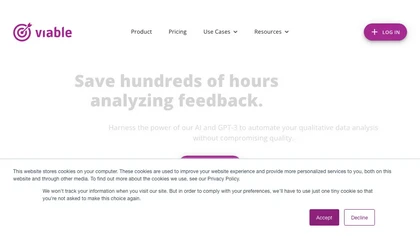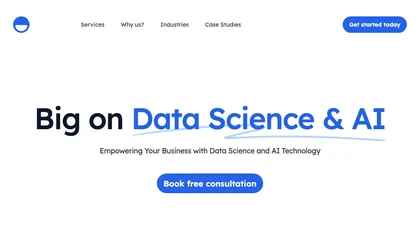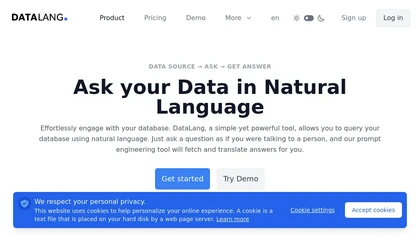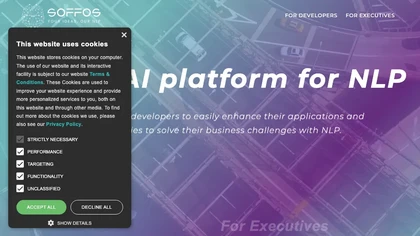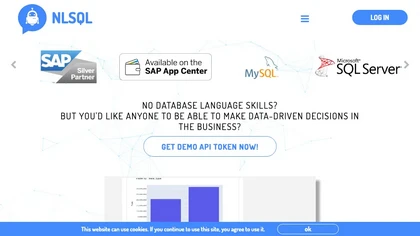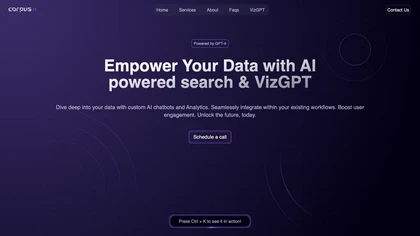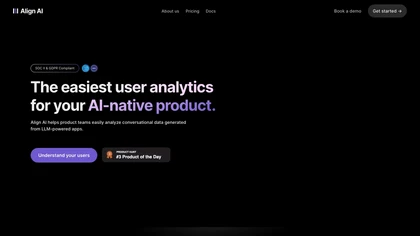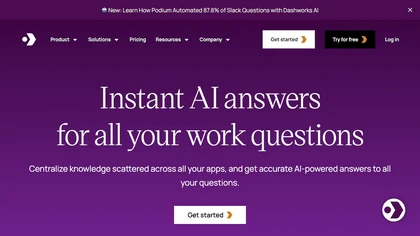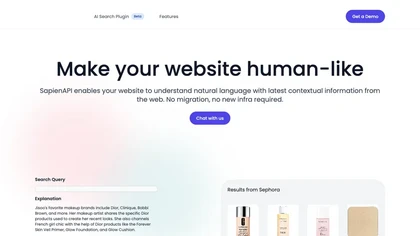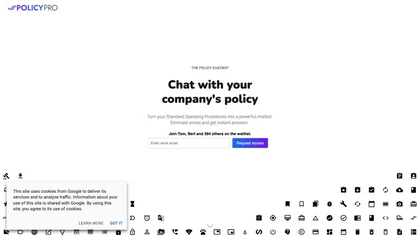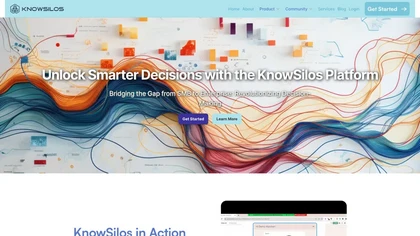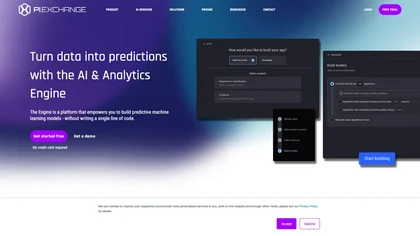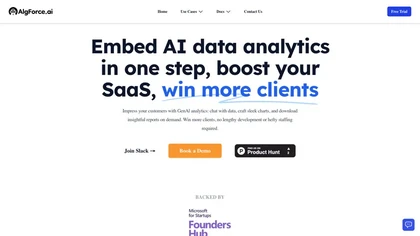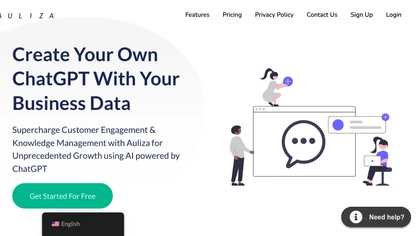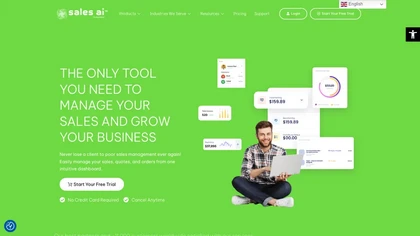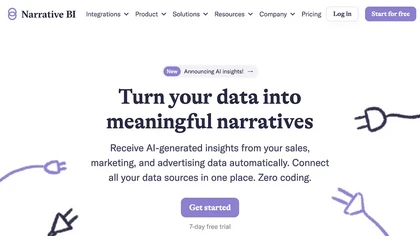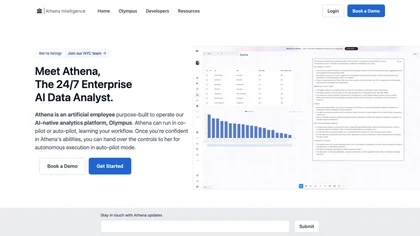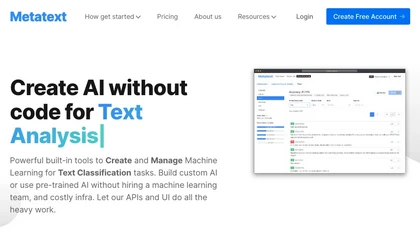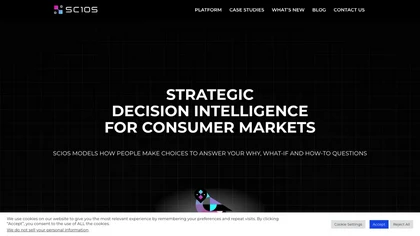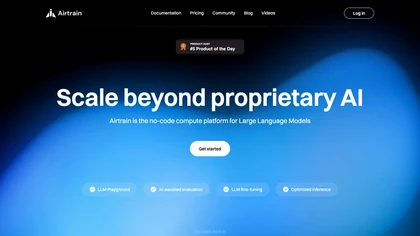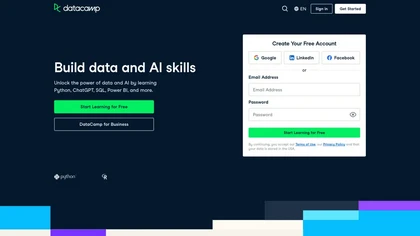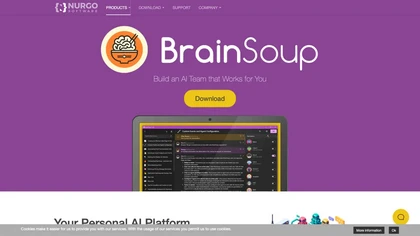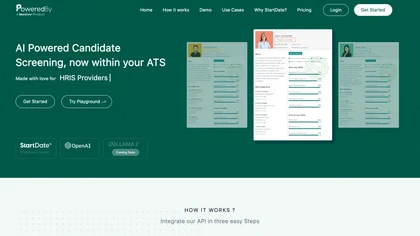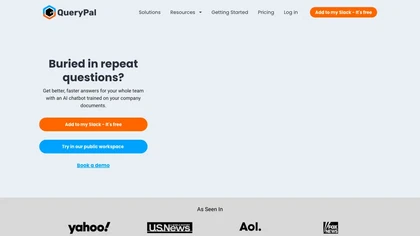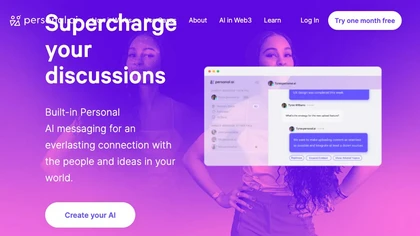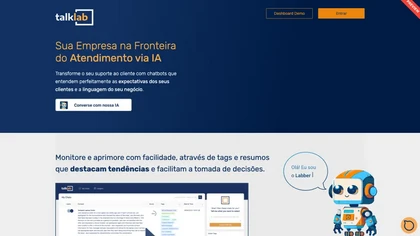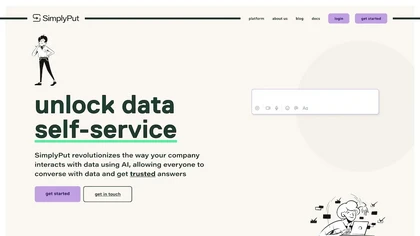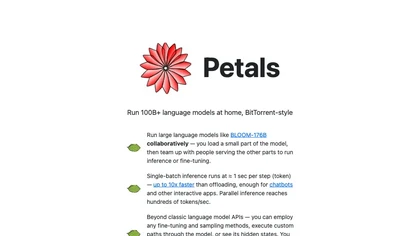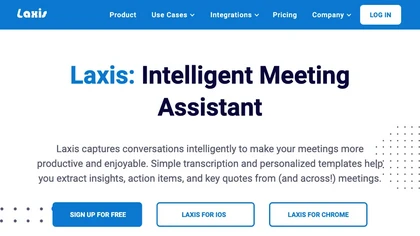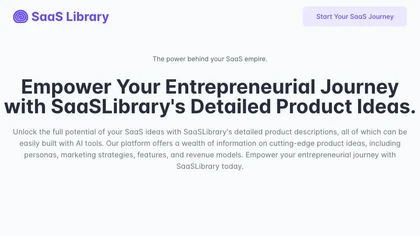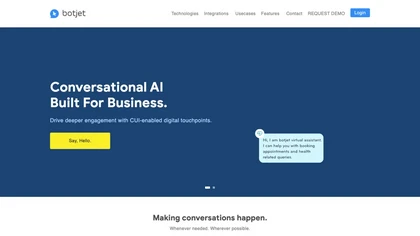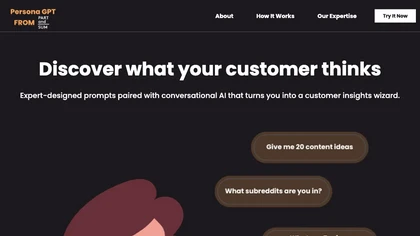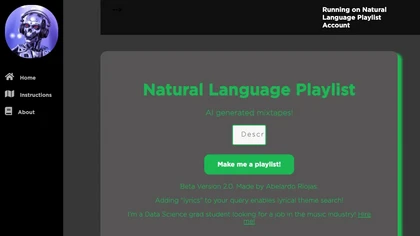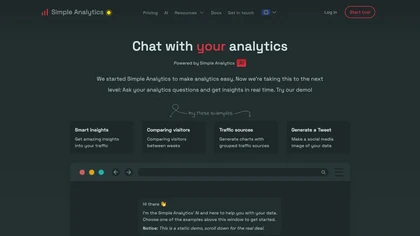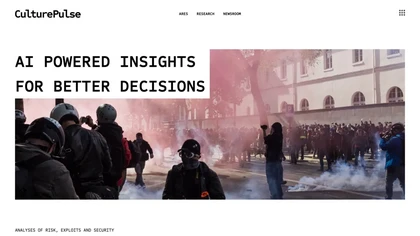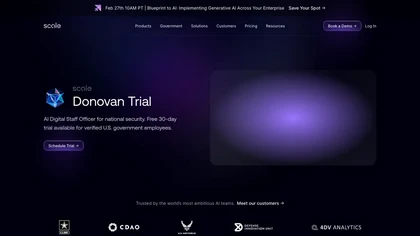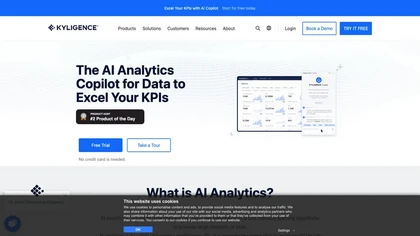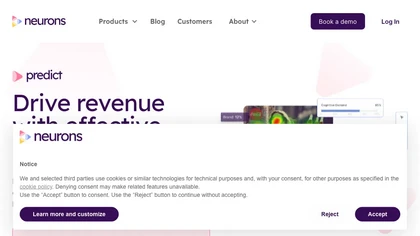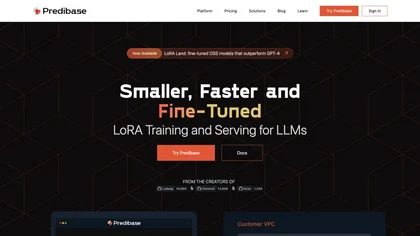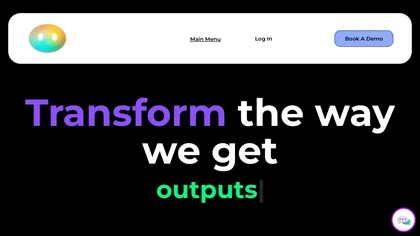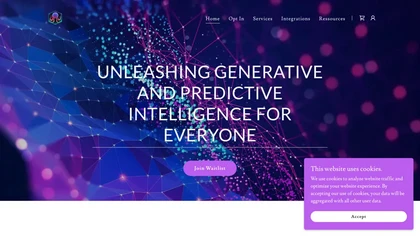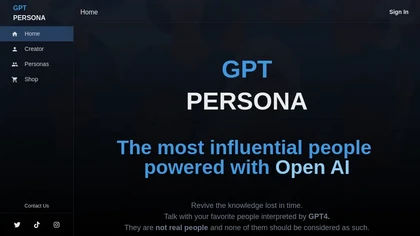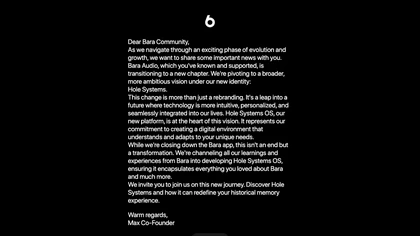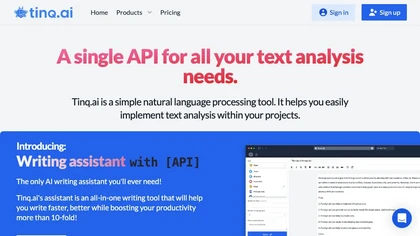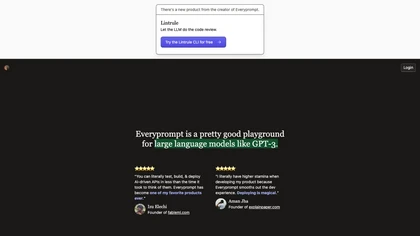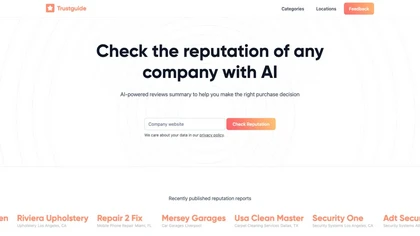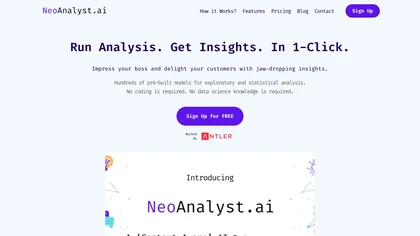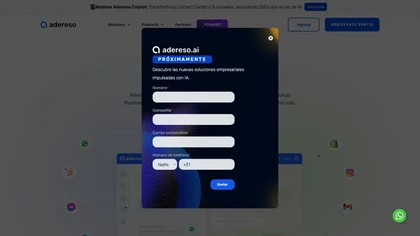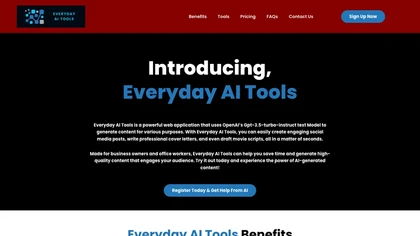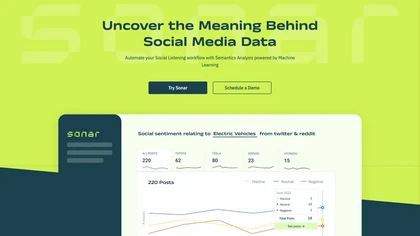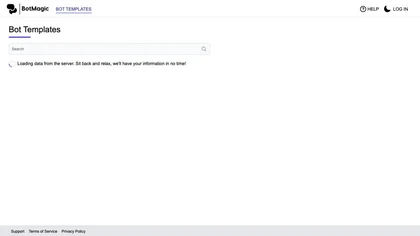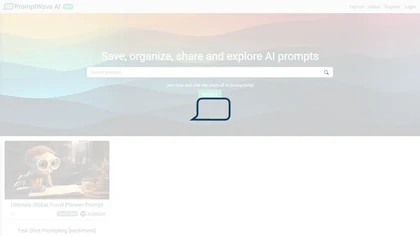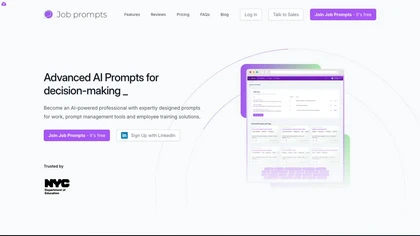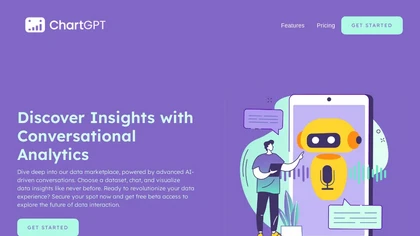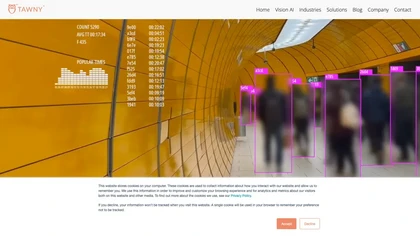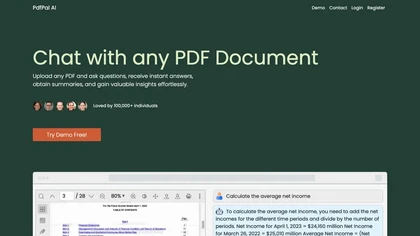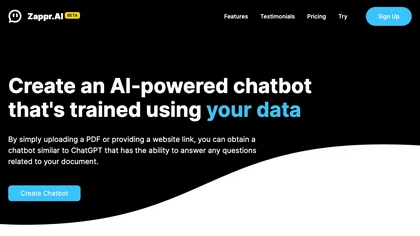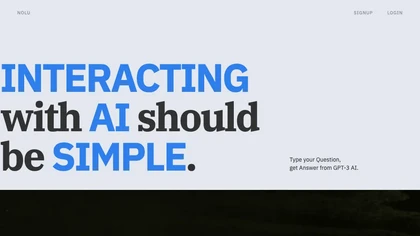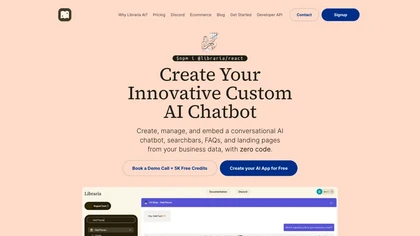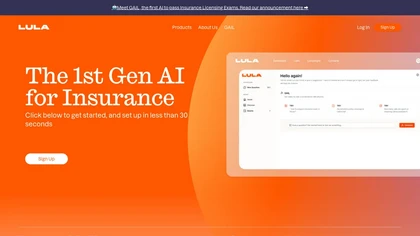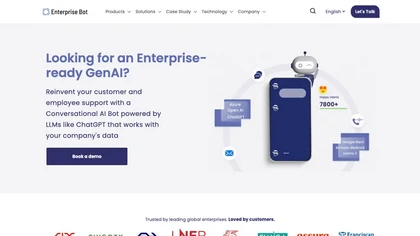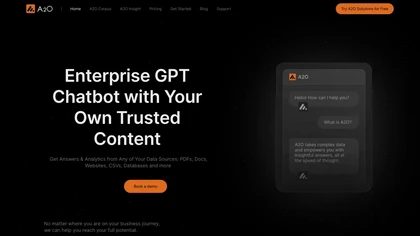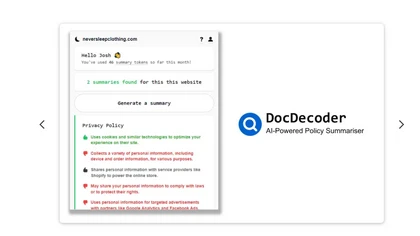AI use cases for Public Policy
Generative AI can be applied in various applications for public policy. Here are some examples to explore below for inspiration with AI tools to get you started with using AI in public policy.
🛠️ 70 AI tools for Public Policy
Explore a dynamic list of some of the most popular tools to get you started with various AI use cases and applications for Public Policy to streamline your workflows and productivity today.
viable features
- Automated qualitative data analysis
- Customer feedback understanding
- Nlp technology
- Feedback analysis
Think AI Agency features
- Natural language processing
- Computer vision
- Recommendation systems
- Predictive analytics
DataLang features
- Query databases using natural language
- Fetch and translate answers
- Handle a wide range of questions
- Provide insights on metrics
- Integrate with other tools
Mixpanel Spark features
- Natural language processing for answering questions
- Access to CEO insights for generating ideas
- Chat with AI for efficient report generation
- Wide range of question types supported
- Built on OpenAI for robust security practices
Soffos AI features
- Nlp
- Pre-built apis
- Advanced nlp toolkit
- Extracting valuable insights from complex data sets
- Making informed, data-driven decisions
NLSQL features
- Searching
- Analyzing
- Real-time decision making
- Integration with corporate databases and messaging systems
- Efficient and accurate clinical decision making
Corpus-X features
- Powered by GPT-4 technology
- Data visualization capabilities
- Advanced search query functionalities
- Supports various data integrations
- Engagement through dedicated chatbots
🔥
Create your account, save tools & get personal recommendations
Receive a weekly digest of our handpicked top tools.
Unsubscribe anytime
SocratiQ features
- Sentiment analysis capabilities
- Natural language processing algorithms
- Text data analysis
- Trend tracking
- Data-driven decision making
impaction.ai features
- Conversational data analysis
- Integration with data sources like AWS S3, GCP BigQuery
- Real-time data ingestion
- Natural language processing capabilities
- Conversation monitoring and tracking
Dashworks features
- AI assistant question answering
- Answers sourced from connected apps
- Continuous improvement with feedback
- Integration with a range of applications
- Internet search capabilities
SapienAPI features
- Converts free form user query into backend-acceptable format with a single API call
- Usable with any programming language through REST interface
- Uses Large Language Models to answer customer queries based on website context and web information
- Provides practical scalability for large Internet companies and high traffic
- Designed as an API plugin for seamless integration
Policy Pro features
- Access standard operating procedures (SOPs)
- Upload SOPs onto a private platform
- Query the chatbot for real-time answers
- Leverage existing PDF SOPs for guidance
- Extract policy information and provide accurate responses
anse features
- Advanced natural language processing capabilities
- Customizable max tokens and message size
- Integration with Azure and Google APIs
- Support for multilingual interactions
- Efficient backend processing for smooth communication flow
YC Application Optimizer features
- Data integration for structured knowledge graphs
- Extraction of insights from PDFs using NLP algorithms
- Creation of easily digestible reports with customizable templates
- Aggregation of large-scale data for quick analysis
- Visualization of critical information through persuasive reports
Pi Exchange features
- End-to-end machine-learning tool
- Eliminates the need for coding
- Smart data preparation
- Model development
- Deployment functionalities
SumoPPM features
- Create visually appealing charts and comprehensive dashboards
- Leverage natural language processing (NLP) for insights and predictions
- Seamless integration of blockchain technology and artificial intelligence
- Interactive project data analysis using natural language
- Features multi-company management and proprietary machine learning technology
AlgForce Copilot features
- Natural Language Querying
- Domain Expert AI Language Models
- Data Visualization Collaboration Tools
- Whiteboard Solution for Team Collaboration
- Privacy Measures and Database Compatibility
AnythingLLM features
- One-click Installation
- Runs locally
- Fully private
- Custom models integration
- Documents ingestion support
Auliza features
- Information retrieval
- Troubleshooting
- Customer support
- Product information
- 24/7 availability
MEJ Sales AI features
- Sentiment analysis
- Natural language processing
- Identifying positive, negative, or neutral sentiments
- Insights into customer opinions and preferences
- Data-driven decision making
Narrative BI features
- All the metrics under one roof
- Natural language generation
- Anomaly detection
- Scheduled reports
- AI driven insights
- Slack chatbot
- Multiple data channels integrations
GPT Law features
- AI-powered legal research chatbot
- Provides plain English legal advice
- Offers 24/7 support
- Powerful search capabilities sourcing information from various legal sources
- Summarizes findings in plain language
Athena Intelligence features
- Artificial employee functionality
- Autonomous data exploration, analysis, and action
- User-friendly interface for enterprise analytics
- Collaborative platform for up to 100 concurrent users
- Advanced capabilities like natural language interfaces and causal AI models
Metatext features
- No-code platform
- Nlp products
- Annotate
- Curate
- Build
- Deploy
- Maintain
- Automate complex workflows
- Text annotation
- Training
- Iteratively curate
Scios.ai features
- predictive modeling
- prescriptive analytics
- scenario exploration
- data-backed decisions
- human-centric AI
Airtrain.ai LLM Playground features
- No-code platform for fine-tuning and evaluating large language models (LLMs)
- Optimize inference and work with fine-tuning
- Customize foundational models with private data
- Cut AI costs by up to 90% by enabling users to fine-tune open-source models and create custom AI models
- Supports custom models and simplifies model evaluation through LLM-assisted scoring
DataCamp features
- Text generation based on prompts
- Interacting with AI-generated responses
- Writing assistance and idea exploration
- Enhancing applications with natural language processing capabilities
- Generating text based on predefined prompts
BrainSoup features
- Custom agent creation
- Collaborative agents
- Natural language task automation
- Semantic kernel technology
- Data management and control
PoweredBy features
- Integration with ATS and HRIS providers
- API key generation for screening requests
- Utilizes proprietary model for job analysis
- Includes NLP and computer vision applications
- Proficiency in machine learning frameworks
QueryPal features
- AI-powered chatbot
- Seamless integration with Slack teams
- Customizable responses for compliance
- Real-time knowledge updates with over 10 integrations
- Automatic synchronization of document permissions
Personal AI features
- Scheduling
- Automating tasks
- Answering customer queries
Talklab features
- Powered by advanced ChatGPT technology
- Easily monitor and improve customer interactions
- Seamless integration on website for continuous support
- Configuration of intents in natural language
- Track and analyze chatbot performance
SimplyPut features
- natural language queries
- Slack integration
- Natural language to SQL
- AI driven insights
Petals features
- Decentralized platform
- Large language model like bloom-176b
- Single-batch inference
- Fine-tuning
- Flexible pytorch api
Laxis features
- Analyze customer interactions
- Uncover valuable insights
- Improve product design
- Enhance decision-making
- Optimize marketing strategies
SaaS Library features
- Product idea generation
- Market strategy development
- Revenue model analysis
- Persona insights
Botjet features
- Conversational Flow Designer
- Natural Language Understanding
- Debugging Console
- Pre-Built Knowledge Bundles
- 3rd Party Intent Engine Support
PersonaGPT features
- Understand customers
- Get feedback on website
- Highlight unique selling points
- Reveal partnerships with crossover brands
- Provide expert-designed prompts
Natural Language Playlist features
- Generate playlists based on user queries related to song lyrics
- Recommend music based on specific genres and themes
- Allow users to describe and personalize their playlist using multiple sentences and adjectives
- Transform words into intelligible music recommendations
- Widen listeners' music horizons and enrich their relationships with music
Simple Analytics AI features
- Real-time insights generation
- Data analysis via analytics questions
- Charts and data visualizations
- User-friendly interface
- Demo for hands-on experience
CulturePulse x Reddit features
- Insights and analyses generation
- Creation of psychologically realistic digital twins
- Global news stream analysis
- Simulation of risk-free environments
- Real-time analytics and predictive AI capabilities
Donovan features
- Powerful generative AI models
- Data analysis (structured and unstructured)
- Enhances existing systems
- Streamlines processes
Patterns features
- Instant AI analytics in 60 seconds
- Natural language interface for accessibility
- Adaptive learning capabilities for enhancing user experience
- Secure IP infrastructure for data safety and scalability
- API integration for developers to seamlessly integrate into applications
Kyligence Copilot features
- Automated insights generation
- Rapid identification of data changes
- Natural language query capabilities
- Anomaly detection
- Unified data sources
Predict features
- Predict human behavior
- Optimize creatives
- Increase conversions
- Improve user engagement
- Unlimited pre-testing and benchmarking
Predibase features
- Fine-tuning Large Language Models (LLMs)
- Information extraction
- Topic classification
- Named entity recognition
- Customer sentiment analysis
Maya AI features
- Data analysis
- Ai-powered natural language processing
- Faster and more accurate results
- Finding answers within data
Predict Expert AI features
- Crafting unique AI models
- Integrating intelligent applications and APIs
- Tailoring AI models and applications to address specific business needs
- Real-time operational insights
- Monitoring performance in real-time
GPT Persona features
- Simulate conversation with influential people
- Revive knowledge using gptpersona
- Engage in conversations with personas created based on real people
- Utilize gpt4 power
- Interactive platform
Bara Platform features
- Advanced artificial intelligence tool
- In-depth analytics and predictive insights
- Cutting-edge algorithms and machine learning capabilities
- Intuitive dashboard for visualizing complex data sets
- Actionable insights for strategic decision-making
Tinq.ai - NLP API features
- Ner
- Sentiment analysis
- Text classification
- Summarization
- Question answering
- Text generation
- Language detection
Everyprompt features
- Crafting AI-driven APIs using large language models like GPT-3
- Intuitive settings and English language understanding for simplified development process
- Testing, building, and deploying APIs in a fraction of the time
- Support for active deployments, suitable for production CI/CD workflows
- Seamless and efficient experience for developers exploring SQL queries or restoring code
Trustguide features
- Public reviews analysis
- Insightful summaries generation
- Neutrality commitment
- Aggregation of diverse opinions
- Prioritization of accuracy
NeoAnalyst features
- Pre-built models
- Instant analysis queries
- Predictive analytics
- Visualize results through charts
- Context-aware analysis
Adereso features
- Seamless communication across various channels
- Natural language processing capabilities
- Integration with CRM systems and e-commerce websites
- Streamlining operations
- Real-time performance metrics monitoring
Everyday AI Tools features
- Utilizes OpenAI's GPT-3.5-turbo-instruct text model
- Generates content for social media posts, cover letters, and movie scripts
- Tailored for business owners and office workers
- Advanced AI algorithms and natural language processing techniques
- Continuous learning and adaptation for superior results
Sonar features
- Semantic analysis powered by machine learning
- Natural Language Processing (NLP) for sentiment analysis
- Automated social listening through semantic analysis
- Topic modeling with enhanced accuracy and reliability
- Identifying key themes and topics in social media data
BotMagic features
- Interpreting and analyzing documents in Confluence
- Swift document summaries
- Custom queries for deeper exploration
- Jira ticket handling and summarization
- Advanced conversational experiences with information security oversight
PromptWave AI features
- Text sentiment classification
- Positive, negative, or neutral classification
- Accurate emotional tone determination
- Efficient sentiment analysis
- Facilitates better understanding of text sentiment
Job Prompts features
- Advanced AI prompts
- Curated prompts for various job functions
- Search, browse, and organize prompts
- Collaboration on prompt collections
- Request custom prompts
ChartGPT Cadlabs features
- Discover insights
- Chat with the tool
- Visualize data
- Embed conversational analytics engine on website
- Craft advanced bots
TAWNY features
- Privacy-first approach
- Human analytics specialization
- AI-based video analytics
- Real-time analysis of human behavior
- Decoding affective states using simple camera hardware
PDFPal.ai features
- Chat with PDF documents
- Ask questions and receive instant answers
- Obtain summaries
- Gain valuable insights
- Generate responses based on the context of uploaded content
Zappr features
- Create chatbots
- Train chatbot with relevant documents
- Analyze documents to extract key information
- Deliver accurate answers to user questions in natural language
- Support a variety of file formats
NOLU features
- Question answering
- Chat assistance
- Text data processing
- Neural network
- Machine learning
Libraria features
- Custom AI chatbot creation
- Natural language processing for personalized responses
- Advanced chatbot features (call-to-actions, link carousels, deep linking)
- Seamless integration of photos, videos, documentation
- Targeted prompts, lead collection, in-depth analytics
LULA features
- Streamline insurance licensing exams
- Generative AI technology for 24/7 virtual assistant
- Transparent pricing and instant onboarding
- Seamless integration into existing systems
- Human-like interactions through voice, SMS, and email
enterprisebot.ai features
- Conversational AI capabilities
- Automation for customer and employee support
- Contextual information processing
- Personalized recommendations
- Integration with existing tools and systems
A2O AI features
- Sophisticated chatbot widget integration
- Natural language query processing
- Robust analysis and precise answers
- Powerful vector search capabilities
- Optimizing decision-making processes
DocDecoder features
- Website policy summarization
- AI recommendations
- FAQ generation
